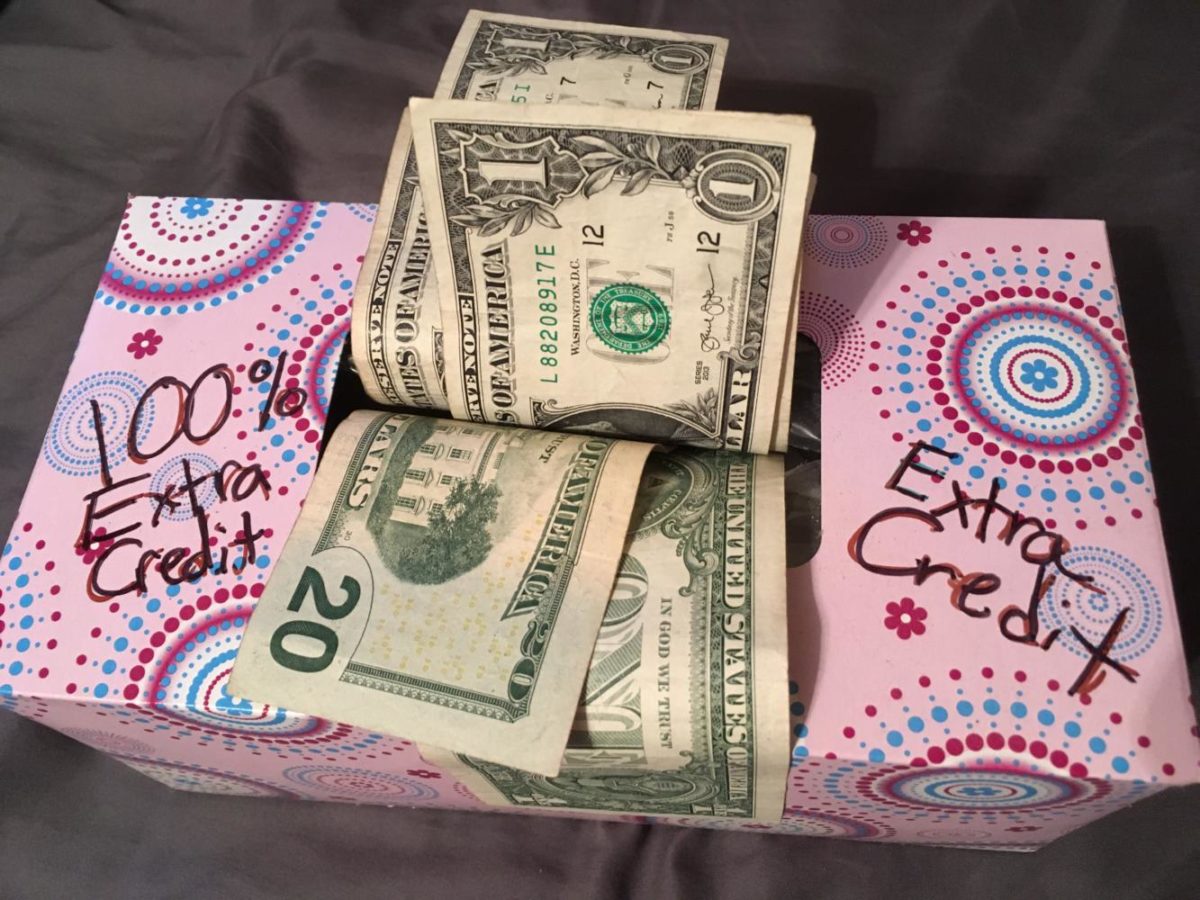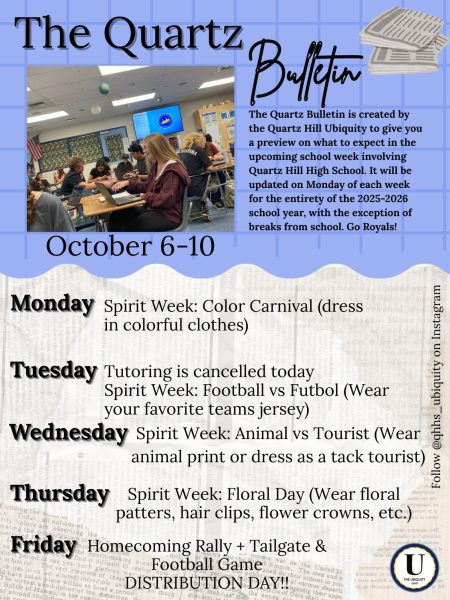Buying Your Extra Credit
Picture by Cody Wilson
Extra credit is one of the most sought-after things by a high school student. Generally, students are willing to do anything to get even five points of extra credit that will help raise their grade. Students can gain extra credit in a variety of ways, such as completing extra assignments, going to an event of a club they represent, or simply buying classroom essentials.
Though it is optional, students are absolutely desperate to stabilize their grade or push themselves over from a 3.8 to a 4.0. Honors, AP, and IB students yearn for these points because they want to ensure that they maintain their perfect grades.
However, some students might not be able to purchase the items needed to acquire this extra credit due to financial issues. These students are at a disadvantage because they are unable to benefit from the assignment, leaving them with few other options to attain a better grade (besides, of course, actually doing well in class).
On the contrary, since the assignment is “extra,” it cannot affect anyone’s grade negatively. Extra credit is unnecessary for students who put effort into the required work to get the grade they desire.
Sometimes, even the mandatory work calls for a small fee. Mr. Ostler and Mr. Nichter give extra credit to students who buy a $3 ticket for their annual Staff vs. Students basketball game. On the other hand, students may have to pay $3 to purchase a poster for a regular class project. Whether the extra credit is revolving around a school fundraiser or an at-home project, Ostler claims that some purchase will be necessary.
Responding to Ostler’s comment, Mrs. Martinez, Yearbook advisor and English 12 Science Fiction teacher, asked, “What is more valuable: a poster that a student is going to complete at the last minute and then throw away after they receive the credit, or a memorable high school experience?”
Though buying basketball tickets may seem like an unorthodox way to get extra credit, there is a purpose to it. Mr. Ostler explained, “It’s a fundraiser for the basketball program… the only fundraiser they have all year… Plus, it’s a lot of fun for the students that go.” Therefore, the proceeds from the basketball tickets go to the good cause of helping the basketball team’s funding. Not only that, but the students who buy the ticket are getting entertainment in return for their money, unlike instances where they buy tissue boxes or supplies for the benefit of the teacher.
It is notable that both Mr. Ostler and Mr. Nichter offer extra credit in many ways that don’t require any purchases. Further, the basketball game is a special occasion for these teachers, occurring once every year. The game always has a successful turn-out and students generally enjoy the competition.
This is not the only instance of offering students the chance to score some extra credit points while supporting Quartz Hill’s many clubs and sports teams. There are many teachers who motivate students to attend fundraisers so that the groups being sponsored will get more of a profit. Clubs and teams rely on the participation of the student body for fundraisers in order to function and host their events. Often, teachers will offer extra credit if students pay to see school plays or attend events like the Living Art Show.
Most would agree that there is a clear difference between buying a ticket to participate in a school event and buying supplies for teachers.
On the other hand, some teachers will try to extend extra credit opportunities to their students in a way that is a bit more fair for everyone. Mrs. Benavides, a math teacher at Quartz Hill, said, “I know that when we do give extra credit. Teachers put it under homework for points, so it’s minimal. It doesn’t go under test and quizzes so it doesn’t hurt the kids that actually work hard to get it.” She also added that extra credit is more likely to be incorporated into tests and quizzes in the form of an extra problem. Therefore, every student will have a completely equal chance at scoring a few extra points.
Mr. House, the IB English and Bible Literature teacher, provides extra credit in a similar way that Mrs. Benavides does with tests. He gives his students extra credit questions from books of riddles because he thinks “it’s fun to stimulate [students’] minds and make [them] think.” He believes it is unfair to allow students to buy items for extra credit. Therefore, his unique and tricky extra credit points are a perfect solution to accommodate those that are less fortunate.
Teachers like Mr. Jenison believe that extra credit should be offered based on how relevant it is to the teachers’ subject matter. He stated, “I can’t seem to offer something as extra credit when it has nothing to do with my content. … I will offer extra credit for people who are more fiscally able to achieve that, for example purchasing a novel. … The thought behind that is to gain ownership of it so that they would have a desire to read that book. When it comes to tissues, there’s no ownership. … It’s literally just for the aid of the teacher.” Therefore, the extra credit points benefit not only the student’s grade, but also enhance their experience in his class. Jenison mentioned that he also offers extra credit points to his students that attend the school plays. This opportunity directly correlates with his unit on drama, since the students must write about it in relation to English and literature.
California law does not specifically state that “buying” extra credit is illegal, so it is more a matter of ethics. Teachers have the responsibility of determining how they choose to offer extra credit in a way that is not discriminatory to students who come from households without a stable income. Most tend to justify these points based on how it helps school programs and educational reasonings behind it. Fairness truly relies on the teacher’s perspectives, in this case. Though there are restrictions to teachers directly requiring students to pay for assignments, no proclamations are in place to determine what is able to be given as extra credit.
There are many ways that extra credit is offered by teachers. Even if it requires something to be purchased, many teachers will try to manipulate the extra credit in a way that is fair for all, despite any financial troubles students may be facing. Some will even try to avoid credit with a cost altogether. Thus, extra credit is able to be “bought,” but not at a great value.

Hello, my name is Mariah Hernandez. I decided to wake up at 5 A.M. every morning and join journalism because I thought it would be nice to write about...

Hello! My name is Natali Josevska, and this is my first year doing the QHHS Ubiquity. In my free time, I enjoy shopping, watching Grey's Anatomy, and spending...

Hello! My name is Cody Wilson, and I am the fearless Editor-in-Chief of the Ubiquity! Although I originally joined journalism to draw pictures and write...








